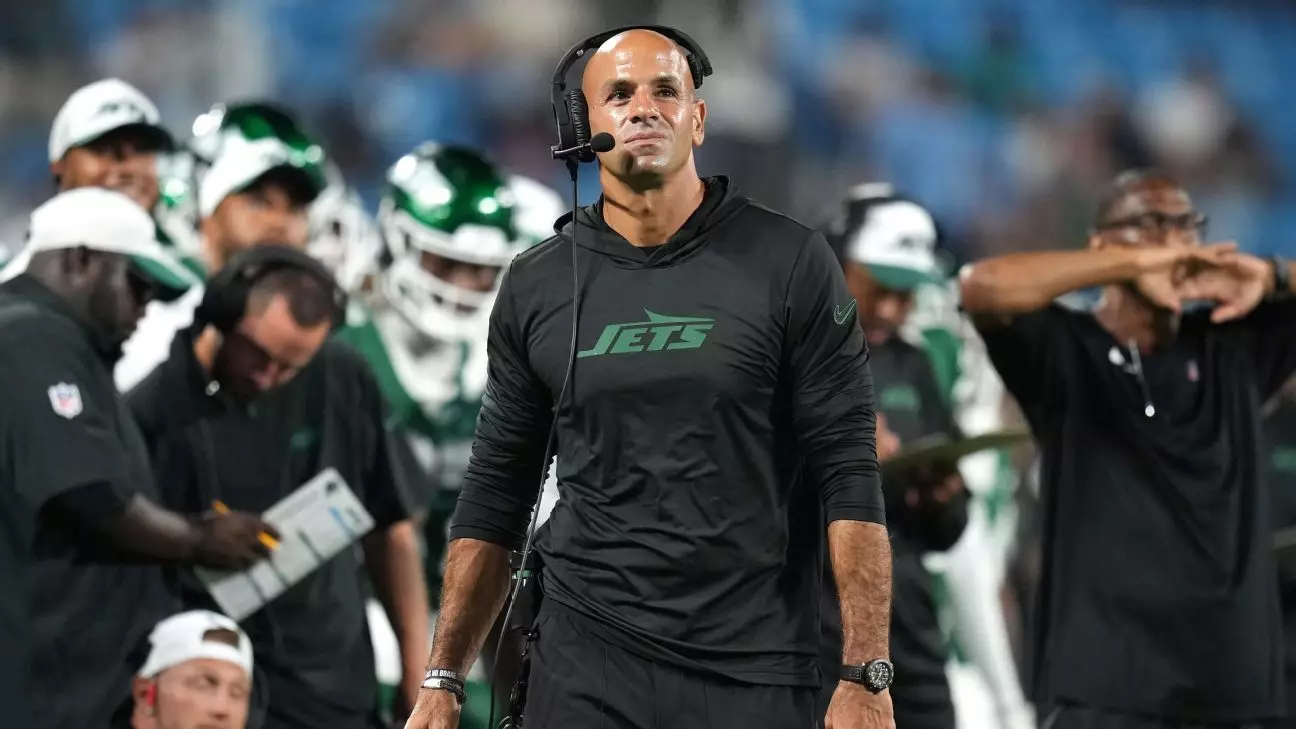The New York Jets have entered a new chapter in their management strategy following the dismissal of head coach Robert Saleh after a disappointing start to the season, with the team sitting at 2-3. This decision, announced by owner Woody Johnson, underscores the high stakes and pressures that accompany professional football in New York. With Jeff Ulbrich stepping in as the interim head coach, questions arise regarding the future direction of the franchise, the impact on players, and the delicate balance of leadership amidst adversity.
Johnson’s statement regarding Saleh’s termination reflects not only the expectations that govern NFL franchises but also the critical nature of performance in a high-pressure environment. Despite the Jets’ aspirations for improvement following a dismal 7-10 finish last season, Johnson felt compelled to make a change, citing a lack of alignment with the team’s goals. The demotion of Saleh marks a significant deviation from the Jets’ strategy; this is the first time in Johnson’s extensive 25-year ownership that he has sacked a head coach mid-season. Such a move emphasizes both urgency and the unwillingness to tolerate mediocrity, especially when fans and stakeholders demand success.
Jeff Ulbrich’s promotion to interim head coach presents an opportunity for re-evaluation within the organization. Known for his toughness and the mutual respect he has garnered from both players and coaches, Ulbrich will likely focus on galvanizing the existing roster and leveraging the strengths that had been dormant under Saleh’s tenure. This shift could signal a renewed emphasis on defensive prowess, the foundation Saleh originally intended. Nevertheless, establishing a competitive offense will be paramount, especially given the recent struggles attributed to quarterback instability.
One of the most significant challenges facing the Jets has been the inconsistency at the quarterback position. Under Saleh, the team cycled through six different quarterbacks, including Zach Wilson, who was hailed as a promising talent after being drafted second overall in 2021. However, Wilson’s failures and injuries to prominent players like Aaron Rodgers, who returned from an Achilles injury just to face immediate setbacks, have hindered the team’s ability to forge a coherent offensive strategy. As Ulbrich takes the helm, his success will hinge on forging a reliable offensive game plan that effectively integrates the available talent.
With Saleh gone, the atmosphere within the Jets’ locker room may experience a significant shift. The players’ relationship with a new head coach can have quintessential impacts on performance and morale. Saleh emphasized maintaining a positive mindset, even in challenging times, asserting confidence before his termination. However, his exit may serve as an opportunity for others, such as Ulbrich, to implement new strategies and rejuvenate a demoralized squad. Yet, instilling a winning mentality in such a turbulent environment will undoubtedly be a daunting task.
While the firing of Saleh is a critical moment for the franchise, it also raises questions about the long-term vision for the Jets. Owner Woody Johnson now faces questions about the direction of the organization and potential future hires to secure a stable coaching position. The impending evaluation of Ulbrich’s performance will undoubtedly influence the team’s decision-making in the coming months. As the Jets navigate through a challenging season, they must prioritize developing talent, settling the quarterback situation, and ultimately restoring competitive respectability.
The New York Jets are at a crucial juncture in their pursuit of success, following the sudden ousting of head coach Robert Saleh. Transitioning to interim leadership under Jeff Ulbrich presents both challenges and opportunities to redefine the team’s identity. As they strive to overcome injuries and quarterback instability, the Jets must also work on rebuilding trust and resilience among players and staff. The future remains uncertain, but a renewed focus on strategy and performance could set the groundwork for eventual resurgence in the competitive NFL landscape.



Leave a Reply